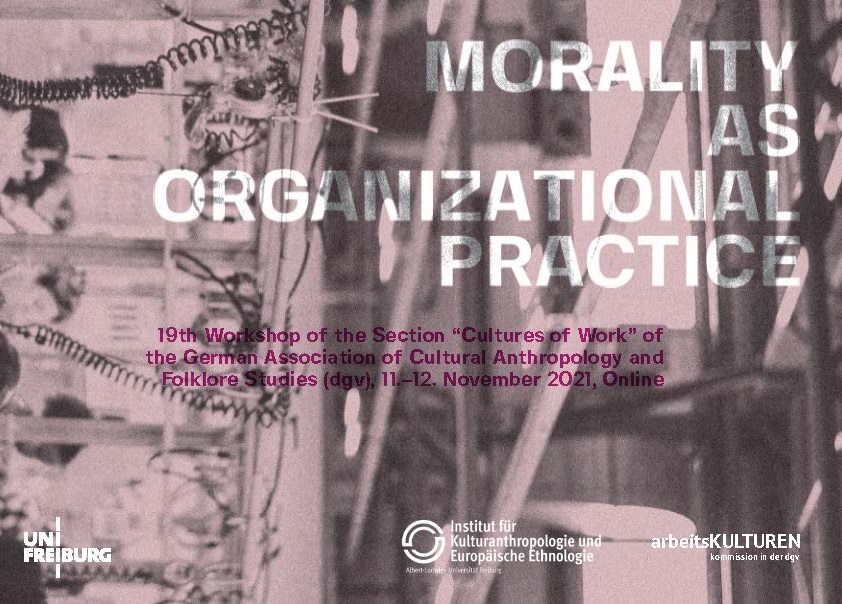19th Workshop of the Section “Cultures of Work” of the German Association of Cultural Anthropology and Folklore Studies (dgv), 11.–12. November 2021, Freiburg im Breisgau.
The online workshop gathers contributions on the subjective perspectives of actors (employees, freelancers, customers, and other stakeholders) on the moralization of organizations and on morality as organizational practice. It asks how they are affected by discourses on morality, how such discourses change organizational culture, hiring practices, work standards or modalities of employment.
The keynote will be given by Ellen Hertz (Neuchâtel). The workshop is preceded by a podium debate (in German) on “Gut arbeiten? Perspektiven auf Verantwortung und Gerechtigkeit in Unternehmen”, bringing together employers, union representatives, human resource officers, and scholars for a discussion of responsibility and justice in enterprises.
Programm | Tagungsbericht | Publikation
Organisation: PD Dr. Stefan Groth (ISEK Universität Zürich), Dr. Sarah May, Dr. Johannes Müske (beide Universität Freiburg)
Organizations are increasingly the subject of moral debates. Calls for product boycotts due to norm transgressions or political engagement of organizations, developments of compliance management and corporate social responsibility standards, initiatives for supply chain laws, the implementation of labels for family friendliness or sustainability – to name a few examples – all address organizations in terms of their ethical conduct and guidelines.
The positioning of organizations, including small and medium-sized enterprises, and non-governmental organizations, is publicly discussed and taken as a basis for consumer, client, and political decisions in a broad scope of topics, ranging from racism, diversity, environmental impact, and animal treatment to corruption, income inequalities, workers’ rights along supply chains, or customer relations. Both the perspectives of customers, organizations, and further stakeholders on such developments have been highlighted under the label of “ethical consumption” or vis-à-vis the fragility of organizations.
However, the impact and effects of these contemporary processes on actors working in or for such organizations or subcontractors, both as employed or freelance workers, have so far only been dealt with tangentially or left as a blank spot.

